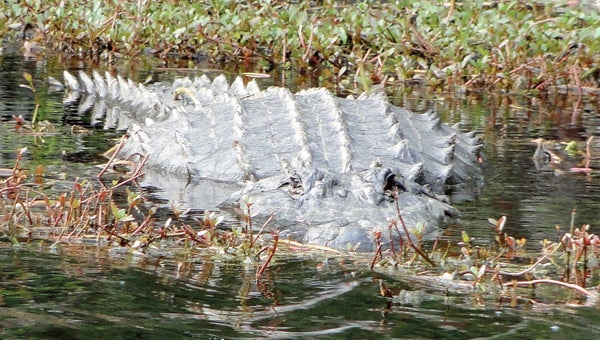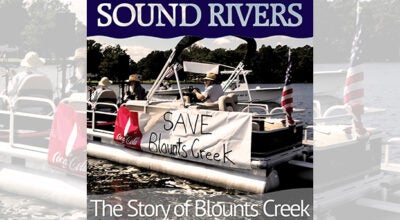REFUGE AIRS: Local film premiers Monday
Published 8:45 pm Thursday, October 10, 2013

STRS PRODUCTIONS | A sample of some of the wildlife to be found in Blake and Emily Scott’s latest nature documentary REFUGE-Alligator River. The film is the fifth in the couple’s award-winning REFUGE series highlighting the wildlife in North Carolina’s National Wildlife Refuges.
Two local producers are helping to kick off National Wildlife Refuge Week with the premiere of their latest film “REFUGE–Alligator River” on WUNC-TV Monday at 8 p.m.
The nature documentary is the fifth in a series of award-winning films about North Carolina’s wildlife refuges by Blake and Emily Scott, owners of STRS Productions in Washington. In it, they cover the high and low pocosin, fresh and brackish water marshes, hardwood, cypress, and Atlantic White Cedar swamps, fields, and hardwood, pine, and mixed forests of the Alligator River National Wildlife Refuge, the largest of ten National Wildlife Refuges in the state. Located in mainland Dare and Hyde counties, the refuge is home many species—some of them endangered—including Red Wolf, Peregrine falcon, bald eagle, American Black Bear and the Red-cockaded woodpecker.
The Scotts have a two-fold purpose in highlighting North Carolina’s national refuges, according to Blake Scott.
“We do (these documentaries) because we like to promote the wildlife in the state of North Carolina and we like to help bring tourism to the state. … We’ve got a safari right here in our back yard — there’s no need to go to Africa,” Scott laughed.
The Scotts will spend up to a year filming each of the series, largely because they want to film the native species in their natural habitat, without using tricks to get good footage.
“We don’t stage or bait or do any type of hiding like that, which make our films unique,” Scott said.
So unique, that the couple has won numerous national and international awards for their work, which has garnered the attention of National Geographic, Discovery and other large documentary television programmers, though they have chosen continue their work with PBS, according to Scott.
It’s tough and time-consuming work, trying to film nature in action, he said.
“Our first alligator, when we were doing Alligator River, we knew we had to get some alligators on film because of the place,” Scott said. “It took us four weeks and at one point (we had to work) a 54-hour period when we finally got the first alligator. Then all of a sudden they all came out.”
Whether filming lightning strikes on Mackay Island or encountering black bears up close, Scott said the crew always has to keep on their toes.
“It’s highly dangerous, there’s no doubt. This is not for the weak of heart,” Scott explained. “You have to be prepared to get close to danger, to be exposed to danger. We try to take as many safety precautions as we possibly can.”
The Scotts’ dedication to filming real wildlife like observing a lone, untagged red wolf surveying its hunting domain, has earned them quite a following. When not shooting film, the Scotts can often be found doing presentations of their work across the state.
Scott said REFUGE–Alligator River is stocked with the drama of nature that plays out on a daily basis and it’s the real deal.
REFUGE-Alligator River will premiere on WUNC-TV (on Channel UNC-EX) Monday, Oct. 14 at 8 p.m., then will be re-aired Oct. 15, at 10 a.m. and 5 p.m.; Oct. 16 at 3 a.m.; and , Nov. 2nd at 9 a.m.





